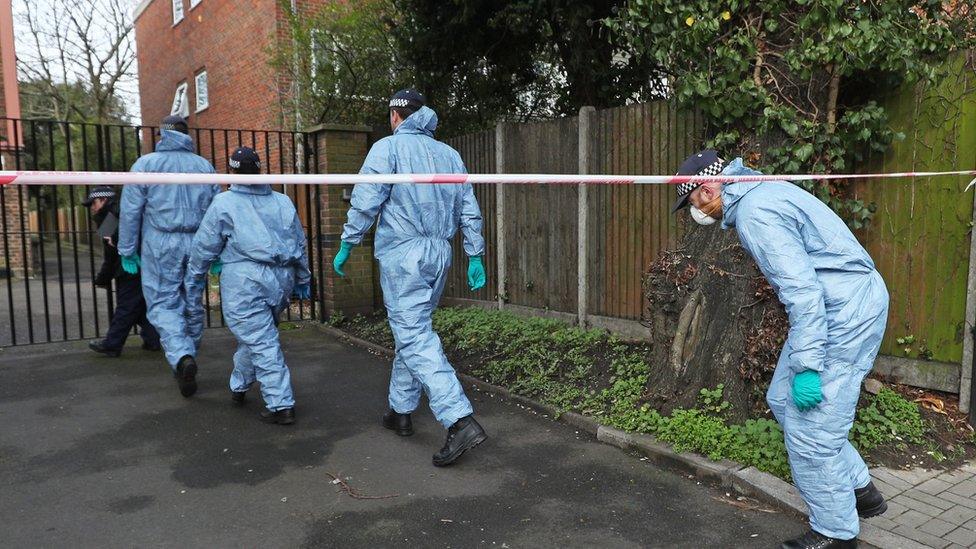MPs approve emergency terror law
- Published

Police have been carrying out searches after the attack in Streatham
Emergency legislation designed to end the release of people convicted of terrorism offences halfway through their sentence has been approved by MPs.
The measures - which would apply to England, Scotland and Wales - were drawn up after the attack in Streatham, south London, earlier this month.
The attacker, Sudesh Amman, had been freed from prison 10 days earlier.
The bill is now set to be debated in the House of Lords.
It passed the House of Commons unopposed and the government hopes the measures will become law by the end of the month.
The aim is to prevent the 28 February release of Mohammed Zahir Khan, who is the next convicted terrorist due to be freed after serving half his sentence for encouraging terrorism.
Under the government's proposals, people given a fixed or determinate sentence for a terror-related offence would be freed only with the agreement of the Parole Board - and after serving at least two-thirds of their term.
The bill would affect about 50 prisoners who were convicted under existing rules, which allow for release halfway through a sentence.
Lawyers for some of the inmates are believed to be preparing a legal challenge, although ministers claim they are not extending sentences, merely changing the way they are administered.
The government believes the changes will not fall foul of the UK's obligations under the European Convention of Human Rights, which outlaws signatory nations imposing longer sentences than those "applicable at the time the criminal offence was committed".
The bill states that the government considers that "release arrangements are part of the administration of a sentence, which can change without breaching an offender's human rights".
- Published6 February 2020
- Published4 February 2020
- Published4 February 2020